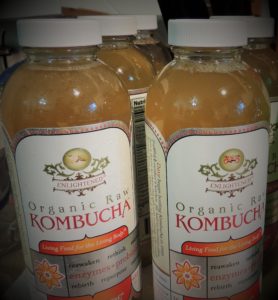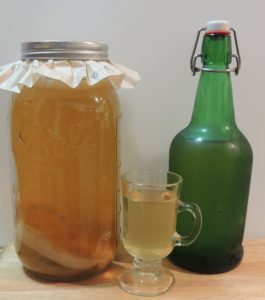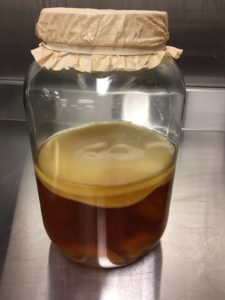 Are you the person who stands at the drink cooler in the grocery store or the filling station trying to decide if you should splurge on the Kombucha or probiotic water – and not even really sure what they are? There seems to be a craze over food products that contain probiotics and the health benefits they provide.
Are you the person who stands at the drink cooler in the grocery store or the filling station trying to decide if you should splurge on the Kombucha or probiotic water – and not even really sure what they are? There seems to be a craze over food products that contain probiotics and the health benefits they provide.
What are Probiotics?
Probiotics are often referred to as the “good bacteria” for our gut as they may aid in digestion. Probiotics are being researched for their impact on our health in a number of other ways. Irritable bowel syndrome (IBS), antibiotic-related diarrhea, some allergies, oral health, and infectious diarrhea (caused by viruses, bacteria, or parasites) are just a few conditions that may be improved by consuming specific probiotics or foods that contain them.
Sources of Probiotics
Some health professionals may suggest using probiotics to aid digestive issues and build a strong immune system. Probiotics can be taken as a supplement in a pill form. Live and beneficial bacteria can also be found in some foods, many of which we can process through fermentation at home. Individuals and families who ferment their own foods or beverages, such as kombucha, kefir, yogurt, sauerkraut, or kimchi are creating gut-friendly bacteria. Not all of these products contain defined probiotics, but often still provide healthful attributes from the activity of live and active cultures.
 What exactly is Kombucha?
What exactly is Kombucha?
Kombucha has grown to be one of the most popular live and active culture items on the market. Some may contain researched probiotics, but all contain diverse dynamic healthful bacteria and yeasts. Still not sure what kombucha is? Kombucha is a lightly effervescent, cider-like beverage, made by fermenting sweetened tea. It is produced using a starter culture of bacteria and yeasts called a SCOBY (Symbiotic Colony of Bacteria and Yeast). This SCOBY is the key component for converting the sweet tea into a slightly sour and healthy gut-promoting beverage.
- When consuming any new food or beverage, start small (up to 4 ounces per day with plenty of water) and observe your own body’s results.
- Caution: Under some conditions, the alcohol level may exceed 0.5 percent alcohol by volume, which surpasses the limit for non-alcoholic beverages.
How about brewing your own kombucha?
Use this easy and safe kombucha recipe provided by Colorado State University Extension: Understanding and Making Kombucha


Thank you! 🙂
Great information and great link on how to make my own.
Thanks. 🙂
Great post !